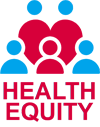CLOSER
Project Title: Childhood Leukemia: Overcoming distance between South America and Europe Regions — “CLOSER”
Duration of the project: From 2019 to 2023.
Main Topic
Global inequalities in access to health care are reflected in differences in childhood leukaemia survival. Every year, more than 100.000 children die of cancer in low- and middle-income countries, where access to health services, complex diagnosis and expensive treatments are often limited and abandonment of treatment may be a major problem. In Latin America and the Caribbean, childhood leukemias are especially frequent and the percentage of children who survive the disease is much lower, between 50% – 80% depending on the types of leukemia and the countries, compared to 80-95% survival rate in Europe. This significant difference may be a consequence of many factors that go beyond the differences in the biology of leukemia, such as the difficulty of the population to access health, the lack of resources for diagnosis or the need for more research in the countries of origin.
The aim of CLOSER, then, is to harmonize the levels of care and reduce inequalities in the outcome of childhood leukaemia patients in the Community of Latin American and Caribbean States (CELAC), and in European countries.
CLOSER – funded from the European Union’s Horizon 2020 research and innovation programme (GA No 825749) – intends to approach childhood leukaemia care in a global and innovative manner, focusing on scientific aspects, but also on socioeconomic, cultural, educational and environmental factors, to improve the survival rate and quality of life of children with leukaemia, their families and their caregivers.
Coordinated by San Joan de Deu Barcelona Children’s Hospital (Spain), the project involves doctors from different hospitals, laboratories, universities, research centers, patient organisations, health policy representatives, companies and representatives of civil society from Austria, Italy, the United Kingdom, the Czech Republic and Spain, Argentina, Chile and Uruguay.
National Centre for Rare Diseases of ISS leads the work package 7 “Cultural, ethical and
legal framework”
Objective
- to create a framework of collaborative, multidisciplinary research between CELAC and European regions, through a consortium that involves patient associations, medical doctors, nurses, researchers, policy-makers and civil society;
- to boost a constant exchange of the knowledge on the biology and epidemiology of different genetic types and on the technological approaches needed for the diagnosis and follow-up of childhood leukaemia between regions;
- to provide additional resources to perform research on the frequency and prognosis of leukaemic subtypes;
- to identify and/or confirm biomarkers that may refine the risk-group stratification of patients and allow a more accurate treatment tailoring;
- to develop innovative solutions to simplify and standardize the current complex diagnostic processes, making them more affordable, so they can be easily applied in those countries with fewer resources;
- to empower patients and families in the process of care of the leukaemia to improve their quality of life.
In order to efficiently implement CLOSER, has been defined the activities under 9 WPs as follow (name and tasks):
WP1 “Collaborative Coordination”:
- Ensure a coordination and supervision, set-up an effective inter-partner communication.
WP2 “Coordinated identification and delineation of leukaemia subtypes”:
- Optimise and harmonise the genetic and immunophenotypic work-up of leukaemia subtypes between Europe and CELAC.
- Establish common standards and algorithms for the most precise and cost-efficient identification and delineation of leukaemia sub-entities. These diagnostic procedures want observe country-specific methodological possibilities and limitations, but also allow the discovery and evaluation of new disease markers.
WP3 “Optimization of the Minimal Residual Disease assessment”:
- Optimize and harmonize the MRD surveillance procedures between Europe and CELAC
WP4 “Clinical impact”:
- Assess the prognostic impact of the leukaemic subtypes identified along with other recognized prognostic factors in each country.
WP5 “Training”:
- Enable access to training in the use of the different technologies needed for the current diagnosis of the different subtypes of childhood leukaemia and their follow-up.
WP6 “Childhood Leukaemia Patients’ involvement”:
- Ensure the involvement and cross-collaboration between the different patient’s associations involved in CLOSER.
- Develop a cross-collaborative working plan between the different patients’ associations involved.
- Develop innovative patterns towards the treatment and involvement of teenagers in the treatment issues.
WP7 “Cultural, legal and ethical framework”:
- Formulate recommendations for ethical committee procedures in all the CLOSER involved countries.
- Deliver an ethical framework for the treatment and interventions within the perspective of the patient and caregivers.
- Ensure a cultural adaptation framework for all the tasks and activities of the project.
WP8 “Dissemination, communication and exploitation”:
- Effectively disseminate and communicate results to directly benefit society.
- Build on a sustainable knowledge transfer strategy.
WP9 “Ethics”:
- Complement the tasks of WP7 on Ethics compliance of the project.
Expected results
- reduce the world-wide inequalities in the outcome of childhood leukaemia patients;
- speed up the transfer of knowledge between European and CELAC regions, allowing a standardization and harmonization of the diagnostic capacities in childhood leukaemia;
- streamline the communication between patients, families, doctors, and researchers;
- foster the entrepreneurship, supporting the collaboration between CELAC and EU companies in the development of new and simpler diagnostic tools;
- provide evidence to policymakers in order to new, simpler and cost-effective diagnostic approaches and targeted treatments can be funded thereafter;
- empower patients, families and civil society to take on a more active role in the care of children with acute leukaemia.
Moreover, the CLOSER global translational and cooperative approach can help progress in other related diseases and the scientific findings in childhood and adolescent acute leukaemia can be translated to its adult counterpart, thus involving higher impact in terms of the number of benefited population.
Responsible of the project: Domenica Taruscio (domenica.taruscio@iss.it), Marta De Santis – member team (marta.desantis@iss.it)
Department/Center: National Center for Rare Diseases
Project website: https://closerleukemia.eu/
